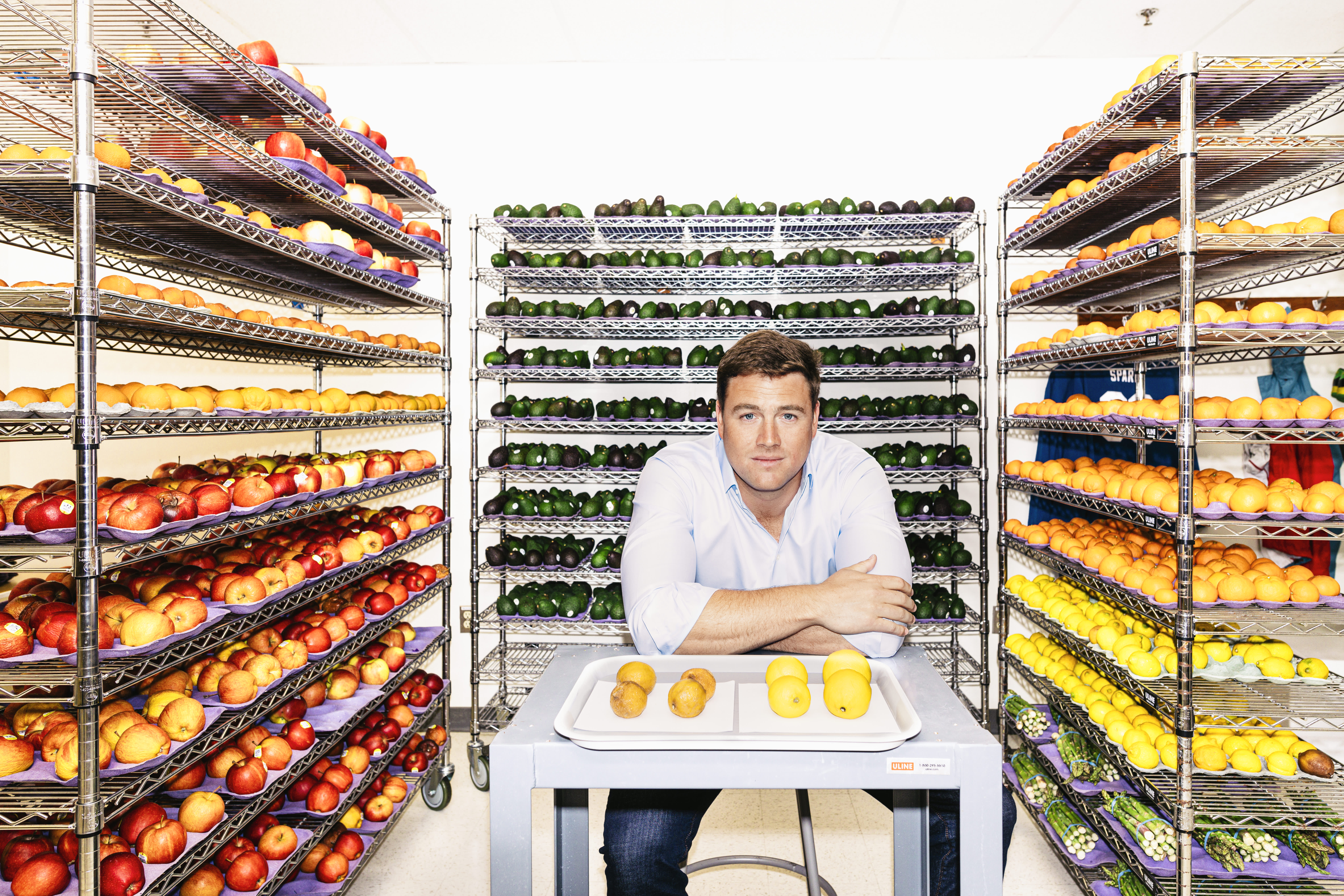
“Perishability is more important than ever,” says James Rogers, founder and CEO of Apeel.
Apeel
Apeel, a food science start-up backed by Oprah and Katy Perry, is launching a new initiative to help the world’s smallest-scale farms waste less and get more of their crops to market.
The company, which makes natural coatings that extend the shelf-life of supermarket staples like avocados and lemons, has raised $30 million in new funding from investors to help with the new effort as well as its expansion to more grocery stores around the world and introducing a wider variety of crop coatings.
Among those new investors is the International Finance Corporation (IFC), a sister organization of the World Bank and member of the World Bank Group, which is the largest global development institution focused exclusively on the private sector in developing countries. This year alone, IFC has invested $22 billion in private companies like Apeel, and their buy-in adds to a roster of heavy-hitting investors for the agritech company, including Andreessen Horowitz, the Bill & Melinda Gates Foundation and the Rockefeller Foundation.
In conjunction with the IFC, Apeel’s new programs for smallholder farmers will lead to the establishment of supply chains in Sub-Saharan Africa, Mexico, Central and South America, and Southeast Asia. Apeel’s technology will also be used to improve domestic supply chains, reducing food loss without the use of refrigeration, which will allow farmers, retailers and consumers within developing countries access to new market opportunities previously out of reach without cold infrastructure or means for rapid transport.
“Innovative technologies can change the course of development in emerging markets and save livelihoods, economies, and, in this case, food,” said Stephanie von Friedeburg, interim managing director, executive vice president, and chief operating officer of IFC. “We are excited to partner with Apeel to invest in a game-changing technology that can limit food waste by half, enhance sustainability, and mitigate climate change.”
Nearly 25% of fruits and vegetables are lost globally, and North America is among the global regions with the highest level of food waste. For Apeel — which develops coatings to preserve produce, including avocados, apples and limes, among others — mitigating food waste is a market opportunity made even more critical by the pandemic.
With food markets and food plants becoming hot spots for coronavirus outbreaks, access to food has become more challenging and food insecurity has surged as an issue for many Americans. These new challenges make the issue of food waste, already a growing problem on a global scale, a more pressing priority for the agriculture and food sectors.
“It’s a misconception that people go hungry because we don’t grow enough food. The issue is the intermittency of supply and an inability to convert perishable assets into economic value,” said James Rogers, founder and CEO of Apeel, which ranked No. 34 on this year’s CNBC Disruptor 50 list. “The harsh reality is that it is nearly impossible today for most smallholder farmers to get their produce to a marketplace that will pay for it before it spoils.”
Currently, the industry norm is to coat produce in fruit wax to give it a glossier appearance and serve as a short-term preservative. But Apeel’s protective coating for produce is extracted from lipids that come from the same produce to which the coating is ultimately applied. The water-based solution extends shelf life by preventing oxidation and water loss, from the grocery store to the consumer’s home, though due to the proprietary nature of its science, Apeel does not disclose extensive details on the formula.
Apeel-coated produce is available in the U.S. in stores such as Kroger and Harps grocery stores. In Europe, its produce is currently available in Denmark’s Salling Group, the country’s largest retailer, and has a deal with Germany’s 11,000-plus Edeka stores.
The company had previously raised $360 million since its founding in 2012, and was most recently valued at $1 billion.




